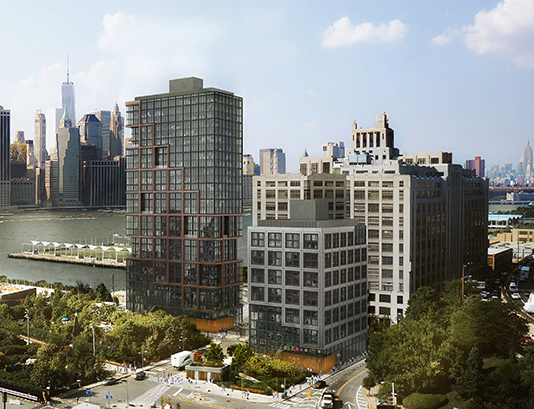Judge rules against Brooklyn Heights Association on Pier 6 development
Two towers can continue to go up in Brooklyn Bridge Park

The Brooklyn Heights Association lost its case against two towers at Pier 6 in Brooklyn Bridge Park. Rendering courtesy of ODA-RAL Development Services / Oliver’s Realty Group
On Thursday, Justice Carmen Victoria St. George of the state Supreme Court denied the Brooklyn Heights Association’s (BHA) petition against a controversial two-tower development on Pier 6 in Brooklyn Bridge Park.
Judge St. George dismissed the case in its entirety, allowing the construction of the residential towers to continue.
In a release, BHA said, “The BHA is disappointed that the Court’s decision dismisses all the claims in the BHA’s petition challenging the development of the two large residential towers at Pier 6.”

Brooklyn Heights
View MoreRead the Brooklyn Height's Press and Cobble Hill News. Find out more about Brooklyn Height's History here.